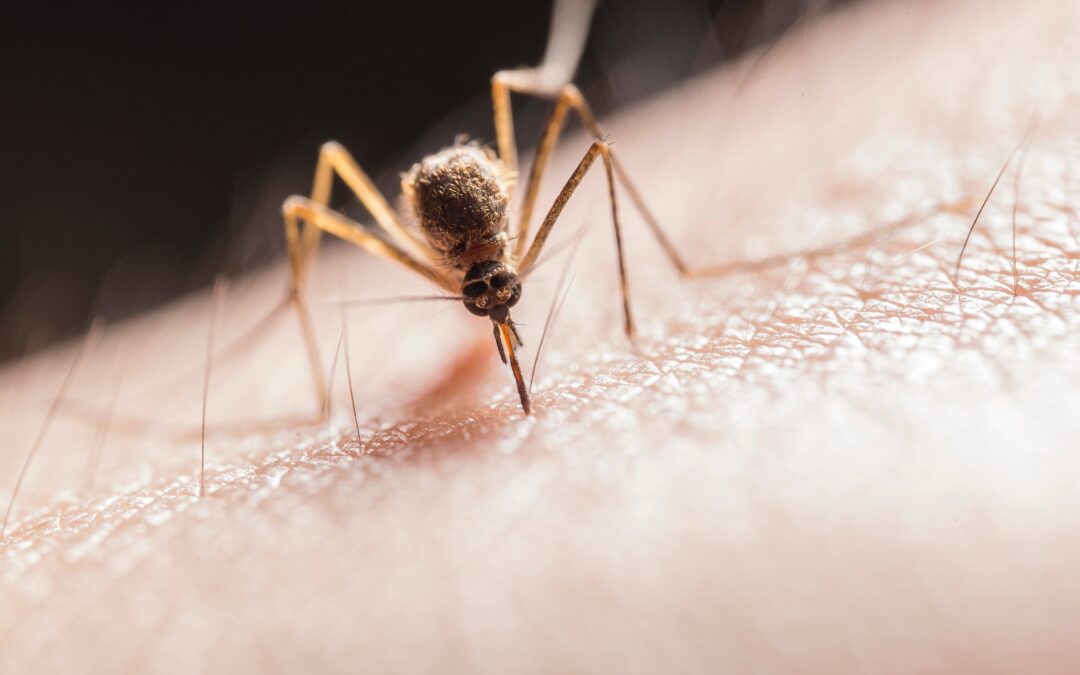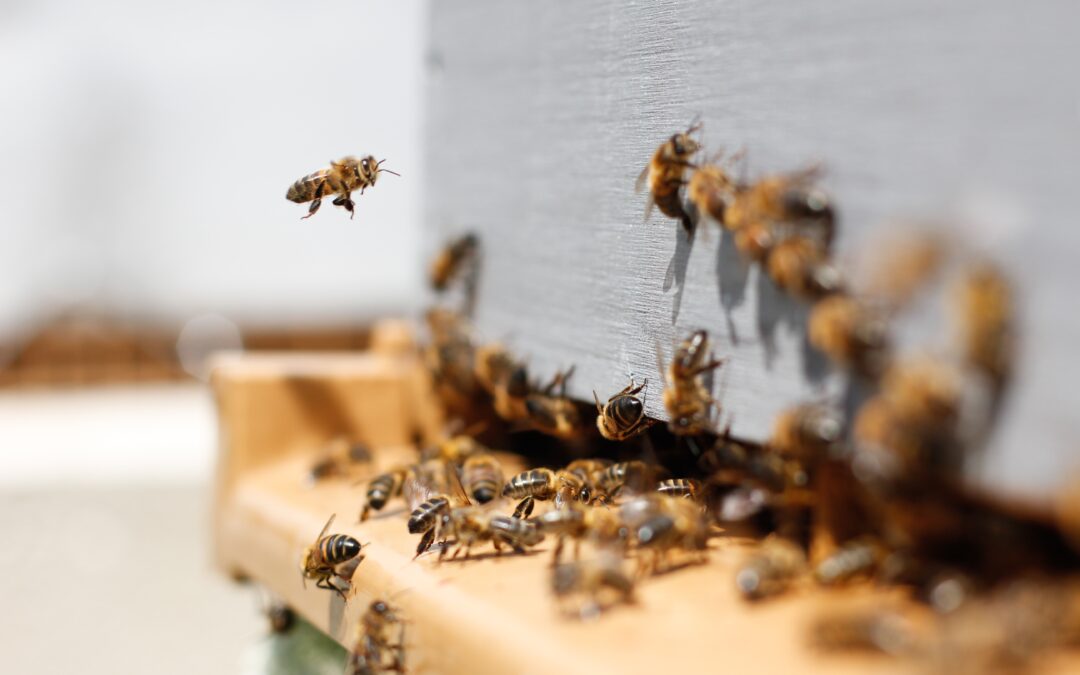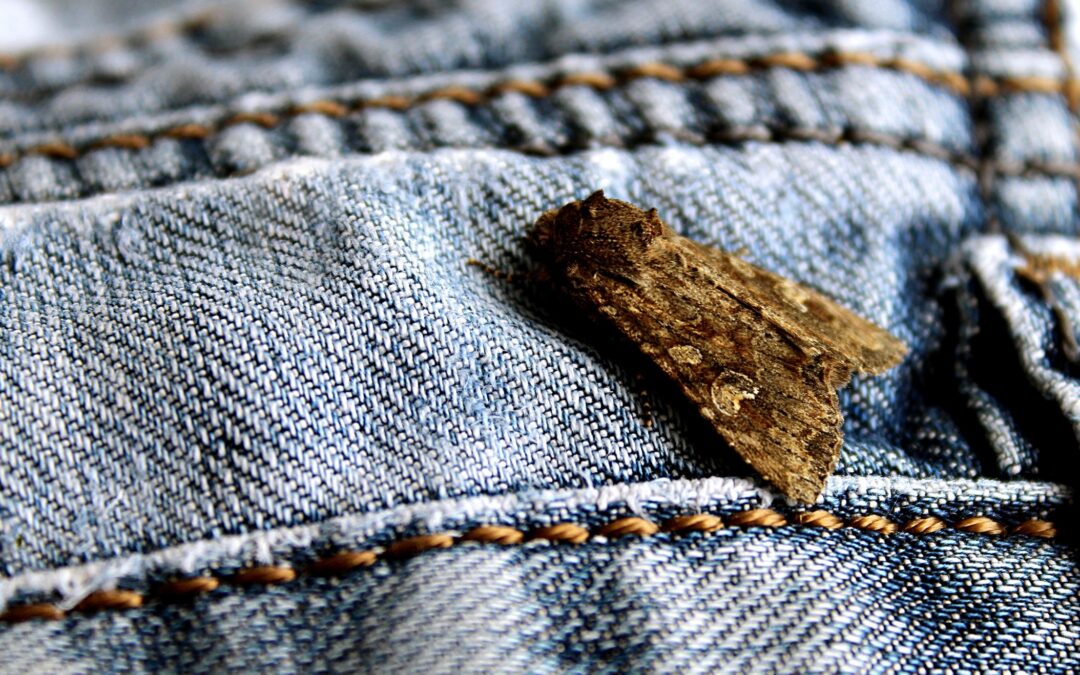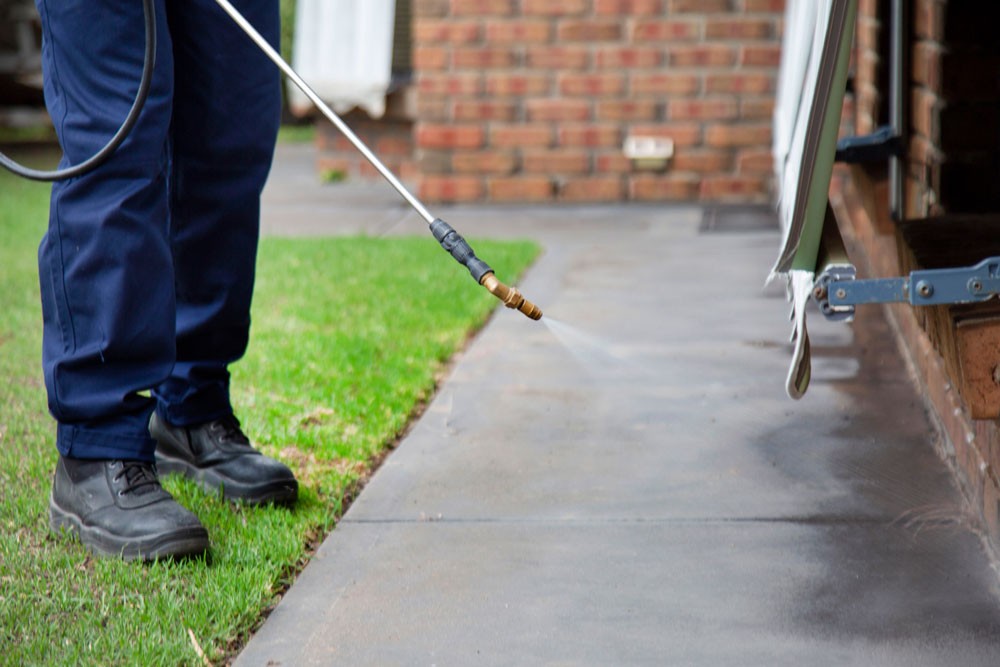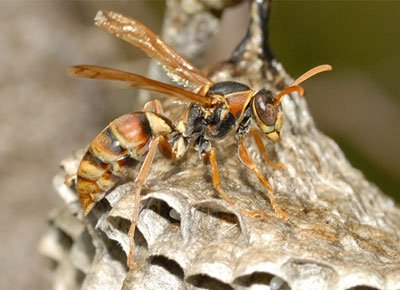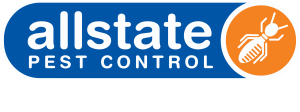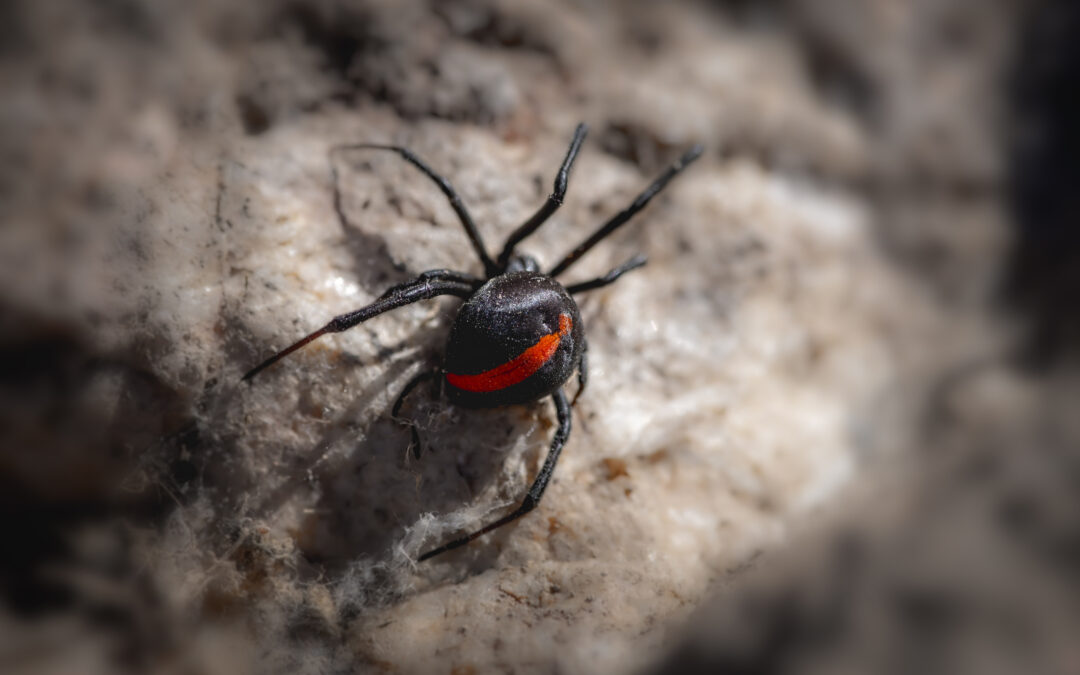
How to Spot Venomous Spiders in Australia This Summer
GUIDE TO PREVENTING SPIDER INFESTATION IN YOUR HOME
Summer in Australia means BBQs, beach days… and more spiders. While most aren’t harmful, a venomous spider can still turn a sunny afternoon into a hospital visit. With over 10,000 species crawling around, knowing how to tell if a spider is poisonous can save you and your family a world of stress. We’ve put together this guide to the more harmful creepy crawlies you might encounter.
What questions will this article answer?
Why are deadly spiders a problem in summer?
Summer is the peak season for spiders, including some more venomous species.
Redback spiders
Though they are notorious for their potent venomous bites, redback spiders aren’t aggressive pests unless disturbed.
White tailed spiders
Known for their dark red to grey, cigar-shaped body with a characteristic white spot at the tip, white tail spiders are a nocturnal hunting spider.
Funnel web spiders
More commonly found in the Adelaide Hills, funnel web spiders live underground in silk-lined burrows in moist, cool and sheltered habitats.
Mouse spiders
Often confused with funnel web spiders, mouse spiders have a distinctive bulb-shaped head and jaw.
Trapdoor spider
Famous for their silk-lined burrows which have a hinged lid at the entrance, trapdoor spiders like to hide up to 250mm deep underground.
Black house spider
A common sight around the home, black house spiders spin fine, lacy webs in zig zag patterns that aren’t sticky.
Wolf spider
A type of hunting spider that doesn’t spin webs, wolf spiders come out at night to hunt and prey on insects.
How to prevent deadly spiders this summer
We recommend keeping your house clean and regular yard maintenance. Take care to wear gloves!
Professional spider extermination
This is carried out through a combination of spider control insecticide and spider control dust.
Choose Allstate for safe and effective spider elimination
We’re available 24/7 to all suburbs of Adelaide for urgent advice on any type of deadly spider outbreak.
Why are deadly spiders a problem in summer?
Summer is the peak time for many insects to emerge from winter hibernation in order to reproduce and look for food. Hungry spiders are no exception.
With plenty of food sources around to support their mating season, you’ll tend to notice spiders around the place more often as they sneak indoors to escape the heat.
While there are an estimated 10,000 species of spiders living in Australia, most of them aren’t harmful to humans. Although they’ll most likely bite when they are disturbed, these bites aren’t usually venomous or painful. They might just leave a mild, itchy bump on the skin for a short time.
However, spiders with more potent venomous bites can cause more serious illness requiring immediate medical attention. The good news is that antivenom treatments are readily available, so you should be fine if you see a doctor quickly.
Get effective spider removal advice today
 or
or
Redback spiders
Though they are notorious for their potent venomous bites, redback spiders aren’t aggressive pests unless disturbed. They have a black body with a distinguishing red stripe on the upper abdomen. Females grow up to 15mm long and males up to 5mm long.
They spin messy webs and prefer hiding in quieter places around your home, such as garages, mailboxes, sheds, under ledges and outdoor furniture. In your garden, they may be seen in branch hollows or tucked away in small crevices between rocks.
White tailed spiders
You’ll find them living beneath leaf litter and piles of vegetation in your garden, as well as underneath tree bark and rocks.
Males grow up to 12mm long and females up to 20mm long.
Manage deadly spiders fast!
 or
or
Funnel web spiders
While not all species of funnel web spiders are known to be dangerous, several are renowned for their highly toxic and fast acting venom.
They are commonly found underground in silk-lined burrows in moist, cool, sheltered habitats in the Adelaide Hills. You may find them in dense shrubs or under rocks, rotten logs or rot and borer holes in trees.
Funnel web spiders are usually black to brown coloured and front part of their body is glossy and covered with hairs. They’re known to grow up to 1-5 cm long.
Mouse spiders
Often confused with funnel web spiders, mouse spiders have a distinctive bulb-shaped head and jaw.
You’ll find them in burrows that can be more than 1m deep, so they are more reclusive than aggressive by nature.
They are mainly black or dark blue but can have bright red or orange-red coloured jaws or around their eyes, as well as a light grey to white patch on top of their abdomen. Adult mouse spiders vary from 10 to 35mm in length.
Trapdoor spiders
Famous for their silk-lined burrows which have a hinged lid at the entrance, trapdoor spiders like to hide up to 250mm deep underground, so you may only come across them if you’re digging through soil or moving around some rocks.
While they look similar to funnel web spiders, they are less venomous. They are yellow and reddish-brown coloured, shiny with a hairy coat, and grow between 1-4cm long.
Black house spiders
A common sight around the home, black house spiders spin fine, lacy webs in zig zag patterns that aren’t sticky. However, they do leave behind old sheets which become messy.
They grow up to 15mm long and are dark brown to black, with a textured velvet appearance.
Black house spiders prefer dry habitats and secluded locations such as window frames, gutters, eaves, bricks, garages, sheds, and even toilets. Outdoors, you may encounter them among rocks, underneath tree bark, or inside tree trunks and logs.
Wolf spiders
Wolf spiders are a type of hunting spider that doesn’t spin webs. They come out at night to hunt and prey on insects. You’ll find them living underground in burrows lined with silk, which may be covered by a lid or leaf litter.
Adult wolf spiders are usually mottled grey or brown and are well known for their Union Jack-style pattern on their upper abdomen. They grow between 15-30mm in size. Female wolf spiders carry their young on their back.
How to prevent deadly spiders this summer
The best way to keep spiders away from your home or business is to seal off entry points, reduce the number of hiding spots and remove all potential food sources.
Regularly cleaning inside, such as sweeping, wiping and mopping can assist with removing insects that attract spiders, and clearing away cobwebs and spider eggs. Don’t forget to check behind the furniture, window corners and other less frequented areas.
We also recommend regular garden and yard maintenance, such as trimming back plants and trees that are growing close to your building to reduce access and mowing lawns. Dispose of litter piles, such as leaves, and move wood piles away from your building. Keep compost and rubbish bins well secured. However, please wear gloves when gardening in case you disturb some hidden spiders!
You can also purchase insect repelling night light bulbs from your local hardware store.
Professional spider control
At Allstate, our spider removal technicians are highly trained to understand spider behaviour, so we’ll conduct a thorough assessment of the outbreak to work out the source.
From here, we’ll come up with a personalised treatment plan for you to make sure that the problem is properly resolved.
We normally use a combination of spider-control insecticide, which is sprayed around the perimeters of your building, and spider-control dust, which is applied in voids and cavities.
We understand the risks of dealing with deadly spiders, so we take great care to carry out our work safely.
You can rest assured that if you have children or pets that our treatments are non-toxic and approved for use by the Australian Pesticides and Veterinary Medicines Authority.
Read more about spider control.
Frequently Asked Questions
Can a redback spider bite cause long-term harm?
A redback spider bite from Latrodectus hasselti often causes severe local pain, sweating, and nausea. While deaths are rare, symptoms can last for days if untreated. Antivenom is widely available in Australia.
How can I tell the difference between a brown recluse spider and other spiders?
The brown recluse spider is rare in Australia but still reported. Look for a violin-shaped mark on its back. Unlike wolf spiders or trapdoor spiders, brown recluse spider bites may lead to ulceration or necrosis.
How can I avoid spider bites while gardening?
Always wear gloves and shake out boots or gardening tools before use. White tailed spiders and mouse spiders may hide in mulch, woodpiles, or leaf litter.
What should I do if bitten by a funnel web spider?
Stay calm and apply a pressure bandage if bitten by a funnel web spider, especially a Sydney funnel web. Call emergency services immediately. Its spider venom acts fast, but antivenom is effective if given early.
How to tell if a spider is poisonous?
You can’t always tell by looks alone. However, venomous spiders like the redback spider or funnel web spider often have distinct markings and body shapes. The safest option is to avoid handling any unknown spider and call an Allstate Pest Control professional if you’re unsure.
Choose Allstate for safe and effective spider prevention
Coming into summer, the last thing you need to worry about is deadly spiders lurking around when you just want to relax and enjoy outdoor activities.
That’s why at Allstate, we’re available 24/7 for urgent advice to all suburbs of Adelaide. No matter if you’re in a commercial, residential or industrial building, our fully equipped technicians are ready to assist with spider outbreaks of all sizes.
Since 1986, we have offered pest control services with a 100% satisfaction guarantee, backed by competitive warranties. With our new payment plans, we can promptly address your spider issues using innovative, long-lasting treatments. Our expert team is ready to help you now.

